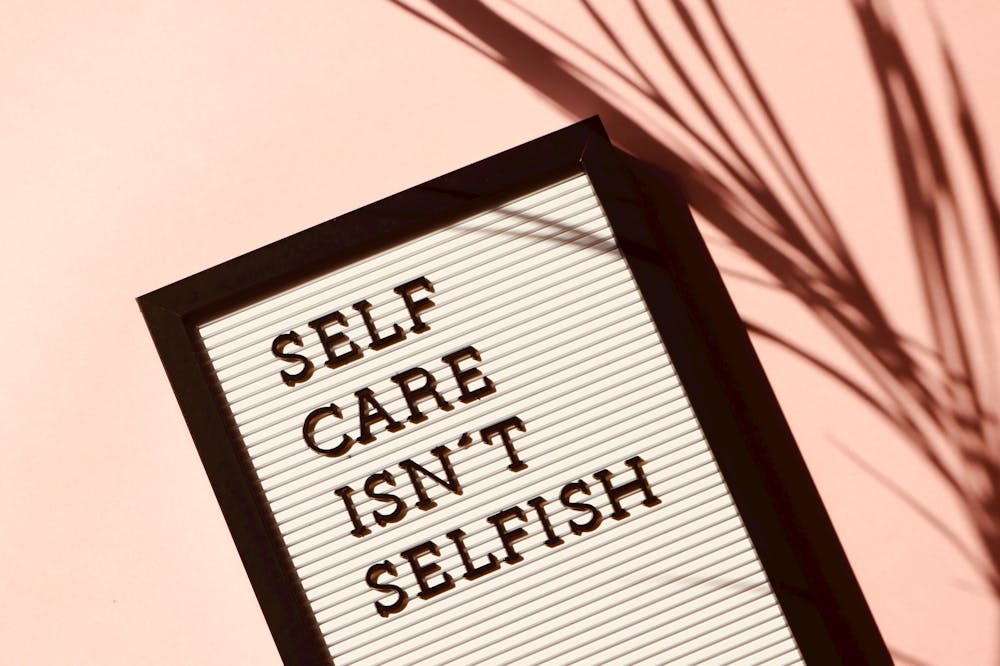My Mental Health Toolbox: Coping Strategies That Work
In navigating the intricate terrain of mental health, I’ve come to rely on a diverse array of coping strategies—tools that help me navigate the peaks and valleys of my emotional landscape with grace and resilience. These coping mechanisms, collectively housed within my mental health toolbox, serve as anchors in times of turbulence, guiding me towards a place of greater stability and well-being.
 One of the most powerful tools in my mental health toolbox is mindfulness meditation. Through the practice of mindfulness, I cultivate a deep sense of presence and awareness, allowing me to observe my thoughts and emotions without judgment or attachment. In moments of stress or anxiety, mindfulness meditation serves as a lifeline, grounding me in the present moment and providing a refuge from the storm.
One of the most powerful tools in my mental health toolbox is mindfulness meditation. Through the practice of mindfulness, I cultivate a deep sense of presence and awareness, allowing me to observe my thoughts and emotions without judgment or attachment. In moments of stress or anxiety, mindfulness meditation serves as a lifeline, grounding me in the present moment and providing a refuge from the storm.
 Another invaluable resource in my mental health toolkit is physical activity. Whether it’s going for a run, practicing yoga, or simply taking a leisurely stroll outdoors, movement has a transformative effect on my mental well-being. Physical activity releases endorphins, the body’s natural mood elevators, leaving me feeling refreshed, invigorated, and more resilient in the face of adversity.
Another invaluable resource in my mental health toolkit is physical activity. Whether it’s going for a run, practicing yoga, or simply taking a leisurely stroll outdoors, movement has a transformative effect on my mental well-being. Physical activity releases endorphins, the body’s natural mood elevators, leaving me feeling refreshed, invigorated, and more resilient in the face of adversity.
 Journaling is yet another tool that I turn to in times of need. Writing allows me to externalize my thoughts and emotions, giving voice to the inner workings of my mind. Whether I’m jotting down my hopes and dreams, processing difficult emotions, or simply reflecting on the events of the day, journaling provides a sense of clarity and catharsis that is both comforting and empowering.
Journaling is yet another tool that I turn to in times of need. Writing allows me to externalize my thoughts and emotions, giving voice to the inner workings of my mind. Whether I’m jotting down my hopes and dreams, processing difficult emotions, or simply reflecting on the events of the day, journaling provides a sense of clarity and catharsis that is both comforting and empowering.
 In addition to these practices, I’ve also found solace in seeking support from trusted friends, family members, and mental health professionals. Opening up about my struggles and sharing my experiences with others helps to break down the walls of isolation and shame, fostering a sense of connection and understanding that is deeply healing.
In addition to these practices, I’ve also found solace in seeking support from trusted friends, family members, and mental health professionals. Opening up about my struggles and sharing my experiences with others helps to break down the walls of isolation and shame, fostering a sense of connection and understanding that is deeply healing.
 Self-care rituals, such as indulging in a hot bath, curling up with a good book, or treating myself to a nourishing meal, are also instrumental in maintaining my mental health and well-being. These small acts of kindness and self-compassion remind me that I am worthy of love and care, even on the darkest of days.
Self-care rituals, such as indulging in a hot bath, curling up with a good book, or treating myself to a nourishing meal, are also instrumental in maintaining my mental health and well-being. These small acts of kindness and self-compassion remind me that I am worthy of love and care, even on the darkest of days.
 Finally, I’ve learned the importance of setting boundaries and practicing self-compassion in my journey towards mental health and healing. Learning to say no to activities or commitments that drain my energy and learning to prioritize my own needs and well-being has been a powerful act of self-love and self-preservation.
Finally, I’ve learned the importance of setting boundaries and practicing self-compassion in my journey towards mental health and healing. Learning to say no to activities or commitments that drain my energy and learning to prioritize my own needs and well-being has been a powerful act of self-love and self-preservation.
 In conclusion, my mental health toolbox is filled with an eclectic mix of coping strategies—each one uniquely suited to address the diverse needs of my mind, body, and spirit. By cultivating a robust toolkit of coping mechanisms and self-care practices, I empower myself to navigate life’s challenges with courage, resilience, and grace. And while the journey towards mental health and well-being may be fraught with obstacles and setbacks, I take comfort in knowing that I am equipped with the tools and resources necessary to weather the storms and emerge stronger on the other side.
In conclusion, my mental health toolbox is filled with an eclectic mix of coping strategies—each one uniquely suited to address the diverse needs of my mind, body, and spirit. By cultivating a robust toolkit of coping mechanisms and self-care practices, I empower myself to navigate life’s challenges with courage, resilience, and grace. And while the journey towards mental health and well-being may be fraught with obstacles and setbacks, I take comfort in knowing that I am equipped with the tools and resources necessary to weather the storms and emerge stronger on the other side.

